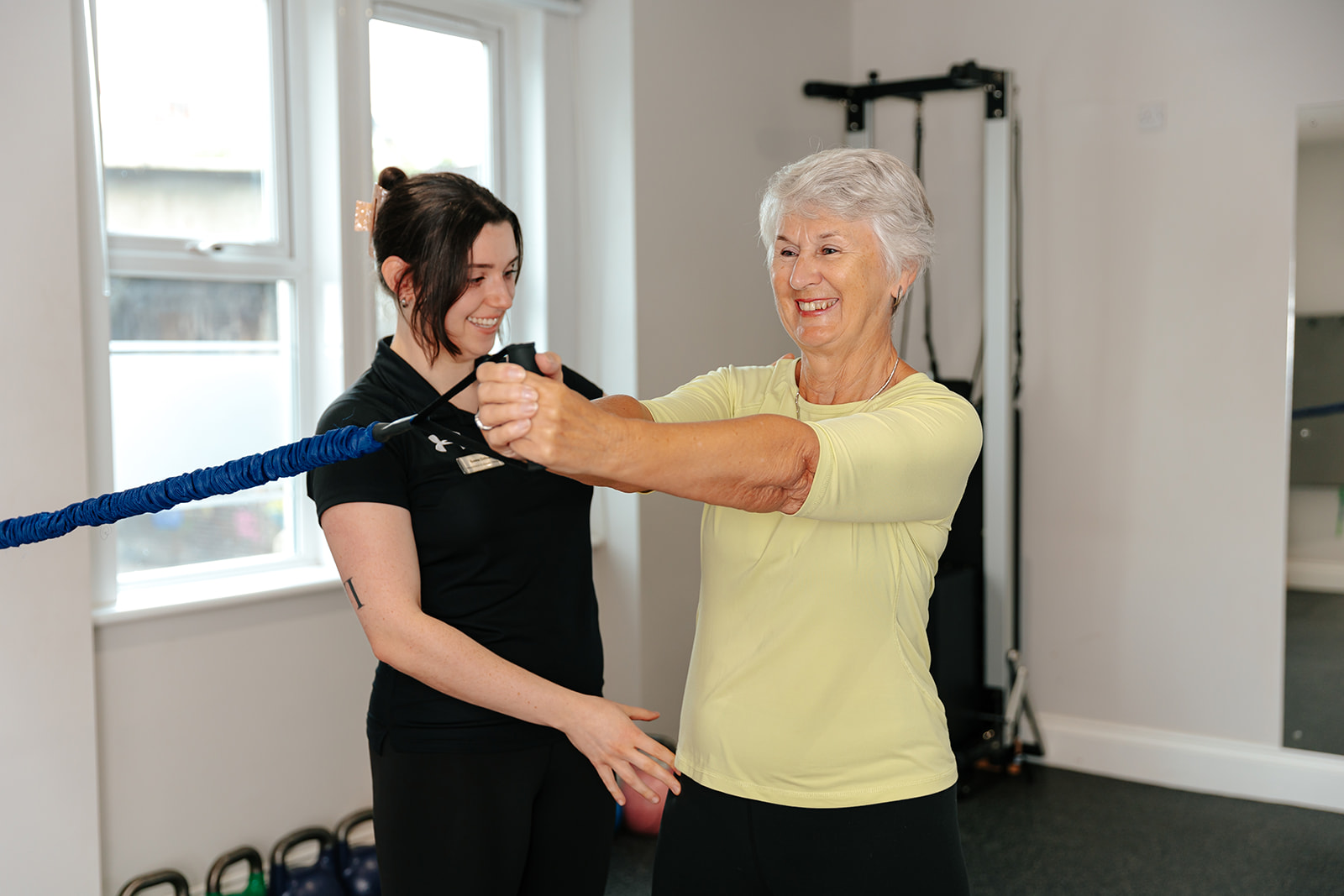Steph Hatt
January 13, 2020
October 17, 2024

Having surgery can greatly impact your everyday life, and the journey doesn’t end once the procedure is completed. Whether you’ve had a minor procedure or a major surgery, rehabilitation is a crucial part of the recovery process and returning to your normal activities.
In this guide, we’ll look at why rehabilitation is important post-surgery, and what you can expect during the rehab process.
Post-surgery rehabilitation is a dedicated program designed to regain strength, mobility, and function after you undergo a surgical procedure. This often includes a combination of physiotherapy and rehabilitation. Including manual therapy, advice and specific exercises to help build confidence and facilitate a gradual return to daily activities.
Everyone’s rehabilitation is different and some will require more time and support than others, depending on the initial injury and the surgery performed. There’s no quick fix to recovery. Instead, you need to let your body heal and follow the recommended plan.
Some of the main types of surgeries that typically require post-surgery rehab include:
As with any type of injury, rehab is a necessary part of the healing process. Normally, physiotherapy should begin as soon as it is safe to do so after surgery, including gentle exercises and stretches to promote circulation and reduce stiffness.
It offers a notable range of benefits, including:
After surgery, your doctor should give you some guidelines, including when it is safe to begin physiotherapy and rehabilitation exercises. Again, this will depend on the severity of the injury and surgery performed. Generally, rehab can start as early as a few days post-surgery for minor procedures, or may take weeks for more extensive surgeries.
The timeline for rehabilitation will differ significantly between injuries. Minor procedures may require only a few weeks to recover from, whereas more significant or complex surgeries could take months or years to achieve recovery.
There can be delays in rehabilitation if there are any set-backs in the recovery process. Your age, fitness, and general health will all affect your recovery time as well.
During your rehab, there are several stages that you can expect to go through, including:
At the beginning of rehabilitation, a physiotherapist will assess your current condition. This assessment may include evaluating your range of motion, strength, balance, and overall functional abilities. Based on this assessment, they will create a unique treatment plan to provide the appropriate level of exercise.
After the initial assessment, you and your therapist will set realistic and achievable goals for your rehabilitation. Typical aims can include:
Once the goals are established, your therapist will introduce a structured plan tailored to your specific circumstances. This phase often includes a mix of passive and active techniques designed to promote healing and restore function.
Your therapist may decide on a combination of treatments such as manual therapy, stretching and strengthening exercises. As you progress your treatment may involve multiple practitioners including physiotherapists and rehabilitation therapists to help get the best outcome for you.
Throughout your rehabilitation process your therapy team will be there to support you every step of the way. Alongside the combination of manual therapy and exercise, regular reassessments allow your therapist to monitor your progress and adjust your plan as needed. There are regular opportunities to review your progress towards your goals.
Although exercises are typically supervised by your therapist, they can also provide you with exercise routines to do at home as well. For example, if you’re recovering from a broken hip, your therapist may recommend some gentle exercises that you can safely perform in your own time. Even a few minutes of daily exercise could make all the difference in your recovery.
We understand that it can be challenging to get your body moving again after surgery, which is why we offer tailored rehab classes at Hatt’s to support you on your journey to recovery. Our team of experienced physiotherapists is dedicated to helping you regain strength, mobility, and confidence through personalised care.
We also offer 1:1 classes for personalised support. Whether you’re recovering from surgery, an injury, or managing a chronic condition, our therapists will work closely with you to develop a comprehensive rehabilitation plan with expert guidance.
You can book a session online, or call our patient services team on 01380 730473 for the most up-to-date class times.